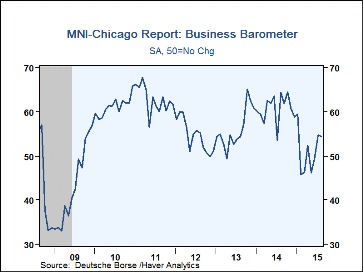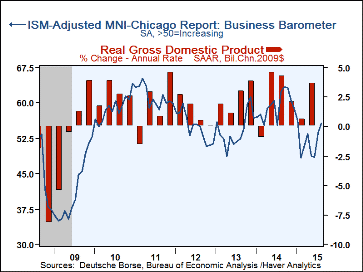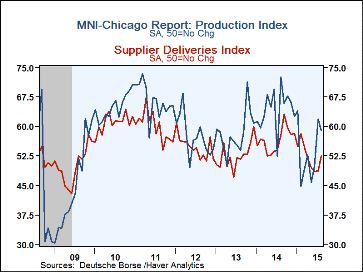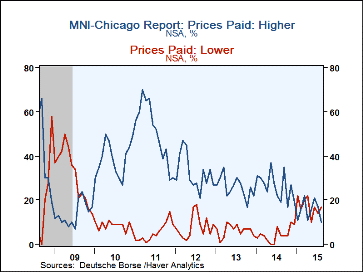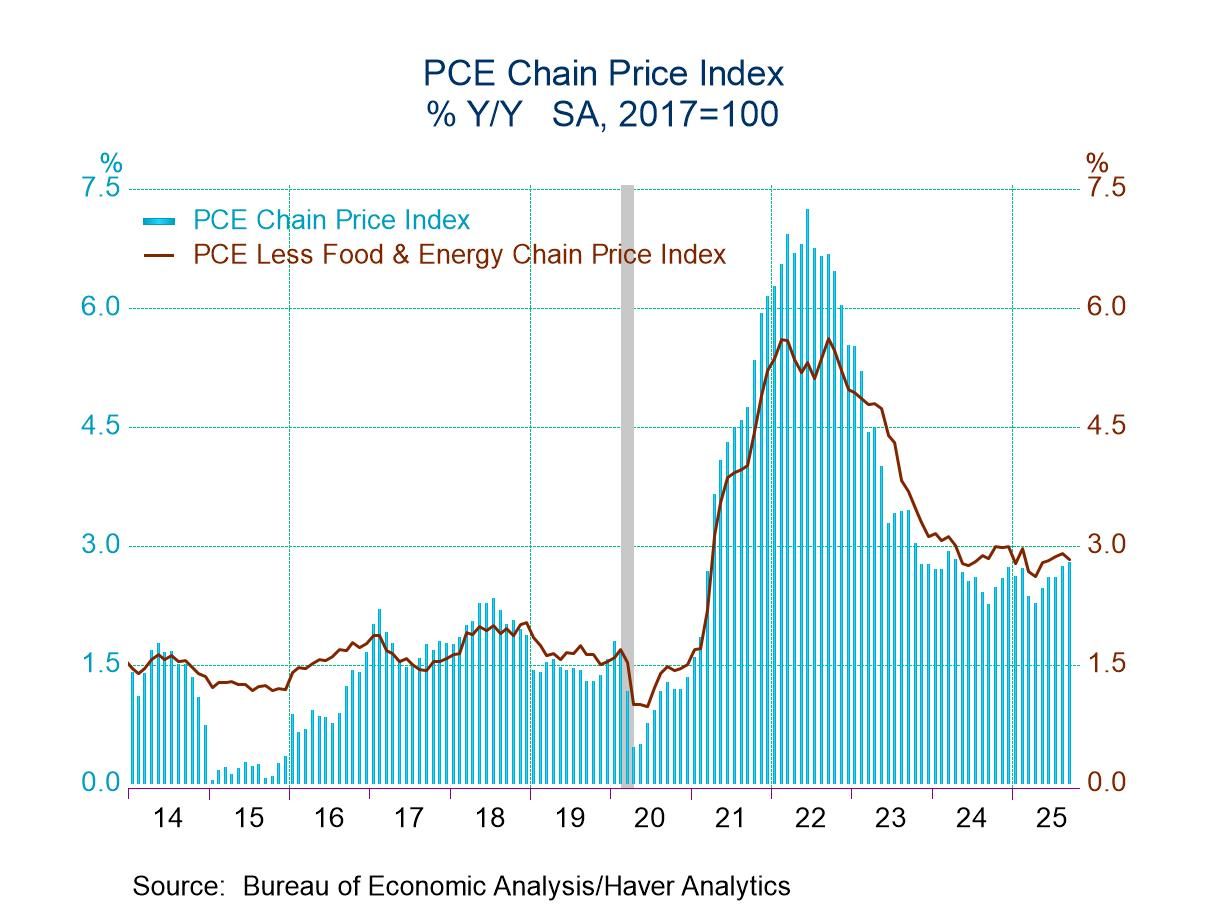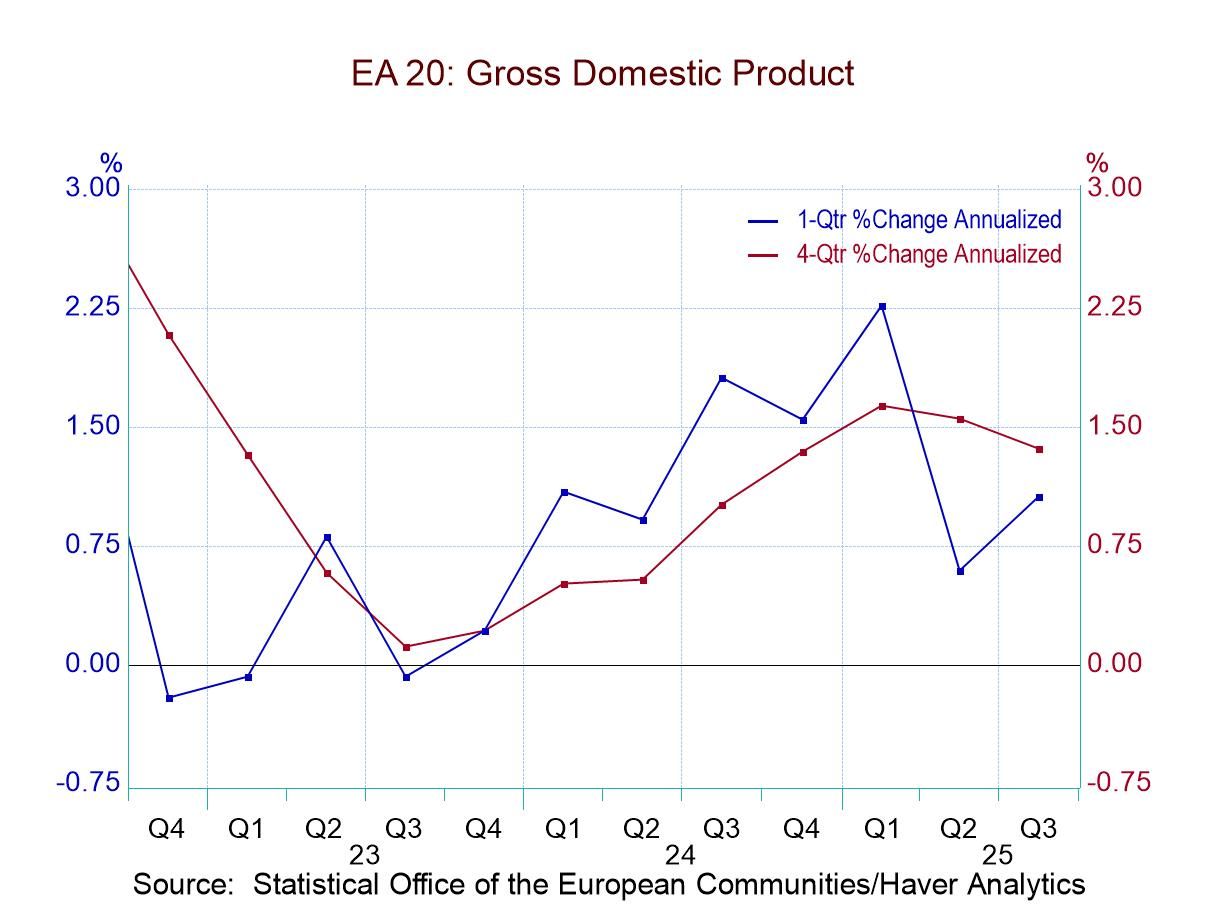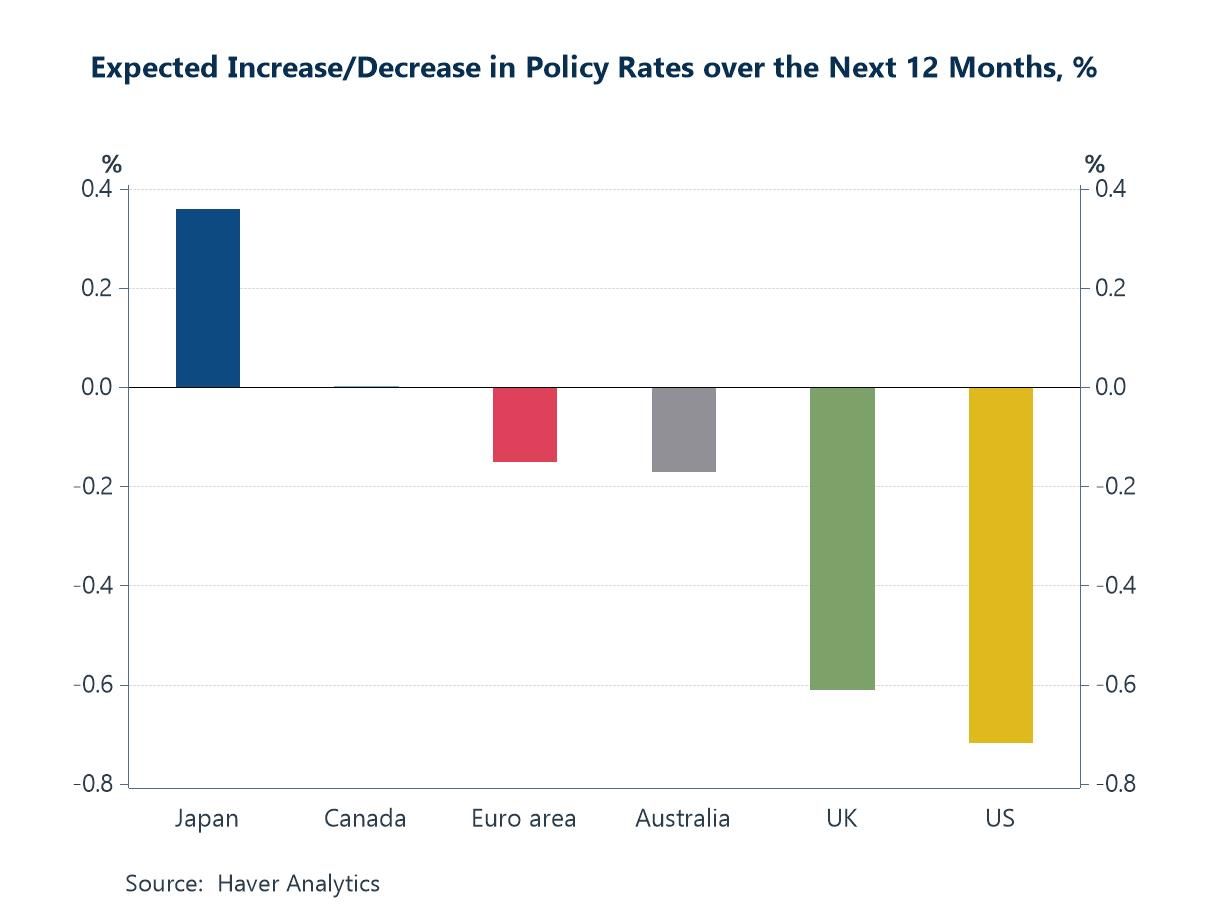 Global| Aug 31 2015
Global| Aug 31 2015Chicago Purchasing Managers Index Eases in August; Q3 Remains Firm
by:Tom Moeller
|in:Economy in Brief
Summary
Chicago purchasing managers reported that their August Business Barometer Index slipped to 54.4 following an unrevised rise to 54.7 in July. Despite the decline, the Q3 average so far of 54.6 was the highest quarterly figure this [...]
Chicago purchasing managers reported that their August Business Barometer Index slipped to 54.4 following an unrevised rise to 54.7 in July. Despite the decline, the Q3 average so far of 54.6 was the highest quarterly figure this year. The August reading beat expectations for a smaller rise to 54.9 in the Action Economics Forecast Survey. Haver Analytics constructs an ISM-Adjusted Index using the Chicago numbers, comparable to the overall ISM index to be released tomorrow. Our figure increased to 55.7, the highest level since January. During the last ten years, there has been a 61% correlation between the adjusted Chicago Purchasing Managers index and real GDP growth.
A lower production reading accounted for much of the decline in the overall index as it remained below last year's high of 72.7. The new orders figure eased slightly m/m but still indicated expansion. Order backlogs eased. The employment reading improved moderately but still suggested payroll contraction. It remained below the break-even level of 50 for the fourth straight month. During the last ten years, there has been an 81% correlation between the employment figure and the m/m change in factory sector employment. Finally, the vendor deliveries series represented the slowest product delivery speeds since March as inventory replenishment continued.
The index of prices paid declined to the lowest point since April. Ten percent (NSA) fewer respondents paid higher prices, nearly the least of the economic recovery, and 17 percent paid less.
The MNI Chicago Report is produced by MNI/Deutsche Borse Group in partnership with ISM-Chicago. The survey covers a sample of over 200 purchasing professionals in the Chicago area with a monthly response rate of about 50%. The ISM-Adjusted headline index is calculated by Haver Analytics using these data to construct a figure with the ISM methodology. The figures can be found in Haver's SURVEYS database. The Consensus expectations figure is available in AS1REPNA.
U.S. Inflation Developments is the title of Fed Vice Chairman Stanley Fischer's Jackson Hole speech and it can be found here.
| Chicago Purchasing Managers Index (%, SA) | Aug | Jul | Jun | Aug '14 | 2014 | 2013 | 2012 |
|---|---|---|---|---|---|---|---|
| ISM-Adjusted General Business Barometer | 55.7 | 53.7 | 48.5 | 62.3 | 59.4 | 54.3 | 54.8 |
| General Business Barometer | 54.4 | 54.7 | 49.4 | 64.3 | 60.7 | 56.1 | 54.6 |
| Production | 59.0 | 61.8 | 49.8 | 72.7 | 64.5 | 58.3 | 57.6 |
| New Orders | 56.7 | 58.5 | 51.7 | 65.2 | 63.8 | 59.2 | 55.1 |
| Order Backlogs | 46.2 | 47.9 | 41.0 | 58.2 | 54.2 | 48.9 | 48.0 |
| Inventories | 61.3 | 53.3 | 46.9 | 60.4 | 56.0 | 45.7 | 51.4 |
| Employment | 49.1 | 46.2 | 45.7 | 55.3 | 56.0 | 55.6 | 55.3 |
| Supplier Deliveries | 52.6 | 48.7 | 48.5 | 57.9 | 56.5 | 52.5 | 54.8 |
| Prices Paid | 47.3 | 54.5 | 53.3 | 60.2 | 61.0 | 59.8 | 62.3 |
Tom Moeller
AuthorMore in Author Profile »Prior to joining Haver Analytics in 2000, Mr. Moeller worked as the Economist at Chancellor Capital Management from 1985 to 1999. There, he developed comprehensive economic forecasts and interpreted economic data for equity and fixed income portfolio managers. Also at Chancellor, Mr. Moeller worked as an equity analyst and was responsible for researching and rating companies in the economically sensitive automobile and housing industries for investment in Chancellor’s equity portfolio. Prior to joining Chancellor, Mr. Moeller was an Economist at Citibank from 1979 to 1984. He also analyzed pricing behavior in the metals industry for the Council on Wage and Price Stability in Washington, D.C. In 1999, Mr. Moeller received the award for most accurate forecast from the Forecasters' Club of New York. From 1990 to 1992 he was President of the New York Association for Business Economists. Mr. Moeller earned an M.B.A. in Finance from Fordham University, where he graduated in 1987. He holds a Bachelor of Arts in Economics from George Washington University.


